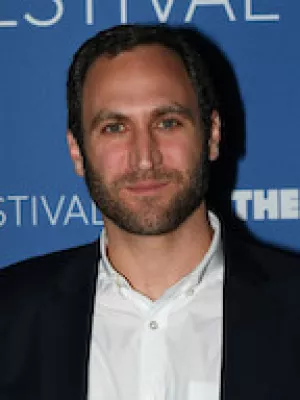Biography
Our lab's goal is to understand the genetic circuits that control human immune cell function in health and disease. We have begun to identify how genetic risk variants for autoimmune diseases disrupt immune cell circuits (Farh and Marson et al., Nature 2015; Simeonov et al., Nature, 2017), and how pathogenic circuits may be targeted with novel therapeutics (Xiao et al., Immunity 2014). My lab has developed new tools for efficient CRISPR genome engineering in primary human T cells (Schumann et al., PNAS 2015; Roth et al., Nature 2018; Nguyen et al. Nature Biotech 2020). Now we are pursuing a comprehensive strategy to test how coding and non-coding genetic variation control essential programs in the human immune system (Simeonov et al. Nature, 2017; Shifrut et al., Cell 2018; Roth et al., Cell 2020; Cortez et al., Nature 2020; Schumann et al., Nature Immunology 2020). Genome engineered human T cells hold great potential for the next generation of cell-based therapies for cancer, autoimmunity and infectious diseases.
Education
| Institution | Degree | Dept or School | End Date |
|---|---|---|---|
| Harvard Medical School | M.D. | Medicine | 2010 |
| Massachusetts Institute of Technology (MIT) | Ph.D. | Biology | 2008 |
| University of Cambridge | M.Phil | Biological Sciences | 2003 |
| Harvard College | A.B. | Biology | 2001 |
Awards & Honors
| Award | Conferred By | Date |
|---|---|---|
| Elected Member of Association of American Physicians (AAP) | 2022 | |
| CRI Lloyd J. Old STAR Career Award | 2019 | |
| Elected Member of American Society of Clinical Investigators (ASCI) | 2019 | |
| Chan Zuckerberg Biohub Investigator | 2017 | |
| American Society of Clinical Investigation (ASCI) Young Physician-Scientist Award | 2016 | |
| Burroughs Wellcome Foundation Career Award for Medical Scientists | 2016 | |
| NIDA/NIH Avenir New Innovator Award | 2016 | |
| Parker Institute for Cancer Immunotherapy, Project Member | 2016 |
Grants and Funding
- Inherited T cell defects: Diagnosis, Mechanisms and Treatments | NIH | 2020-09-08 - 2025-08-31 | Role: Principal Investigator
- Functional Molecular Investigation of Inflammatory Bowel Disease (IBD) Risk Variants | NIH | 2018-09-18 - 2022-05-31 | Role: Principal Investigator
- Functional Interrogation of Non-Coding Type 1 Diabetes Risk Variants in Human Immune Cells and Beta Cells | NIH | 2016-09-30 - 2021-05-31 | Role: Principal Investigator
- Functional Testing of Host Genes that control HIV Latency in Primary Immune Cells | NIH | 2016-06-01 - 2021-05-31 | Role: Principal Investigator
Publications
MOST RECENT PUBLICATIONS FROM A TOTAL OF 116
- NKp30 and NKG2D contribute to natural killer recognition of HIV-infected cells.| | PubMed
- A model for accurate quantification of CRISPR effects in pooled FACS screens.| | PubMed
- Systematic decoding of cis gene regulation defines context-dependent control of the multi-gene costimulatory receptor locus in human T cells.| | PubMed
- Long noncoding RNA LIRIL2R modulates FOXP3 levels and suppressive function of human CD4+ regulatory T cells by regulating IL2RA.| | PubMed
- A proximal enhancer regulates RORA expression during early human Th17 cell differentiation.| | PubMed
- Bidirectional epigenetic editing reveals hierarchies in gene regulation.| | PubMed
- Publisher Correction: Advancing T cell-based cancer therapy with single-cell technologies.| | PubMed
- Improving prime editing with an endogenous small RNA-binding protein.| | PubMed
- CRISPR-Cas9 screen of E3 ubiquitin ligases identifies TRAF2 and UHRF1 as regulators of HIV latency in primary human T cells.| | PubMed
- Ultra-high efficiency T cell reprogramming at multiple loci with SEED-Selection.| | PubMed

